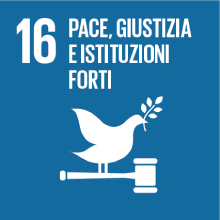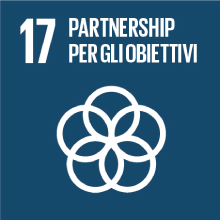HISTORY OF EUROPEAN CONSTITUTIONALISM
- Anno accademico
- 2022/2023 Programmi anni precedenti
- Titolo corso in inglese
- HISTORY OF EUROPEAN CONSTITUTIONALISM
- Codice insegnamento
- LM5850 (AF:381782 AR:207646)
- Lingua di insegnamento
- Inglese
- Modalità
- Blended (in presenza e online)
- Crediti formativi universitari
- 6
- Livello laurea
- Laurea magistrale (DM270)
- Settore scientifico disciplinare
- M-STO/02
- Periodo
- II Semestre
- Anno corso
- 1
- Spazio Moodle
- Link allo spazio del corso
Inquadramento dell'insegnamento nel percorso del corso di studio
Objectives
-Provide students with a clear theoretical and empirical framework to understand the concept of constitutionalism according to an historical perspective
-Analyze themes of constitutional history (good government; written constitution, fundamental rights) in a cross-cultural and multidisciplinary perspective able to encompass political, economic and cultural factors
-Analyze the key-themes of constitutionalism and their historical development
The above-mentioned specific objectives aim to give students the instruments necessary to develop a critical and personal view of the topics discussed and to develop an independent and multidisciplinary methodology for the analysis of historical phenomena to better understand the present.
Risultati di apprendimento attesi
- Understand the general framework of the History of European constitutionalism
- Understand the cultural approach to constitutional history
- Understand the multidisciplinary character of Constitutional History through the thematic cases presented
- Understand the historical processes of European constitutionalism
2. Ability of applying knowledge and understanding: at the end of the course the students will be able to
- Understand the general framework of the History of European constitutionalism> Ability of discussing subjects related to the field (History of constitutionalism) in a specialized language and according to an historical methodology and to explain them to classmates
- Understand the cultural approach to constitutional history > Ability of comprehending the methodology and to confront it with other instrument of analysis they already master from previous studies (e.g. European history, Cultural history, History of International Relations)
- Understand the multidisciplinary character of Constitutional History through the thematic cases presented> Ability of applying the historical methodology through the cases analyzed also to other fields of study (e.g. final dissertation)
- Understand the historical processes of European constitutionalism > Ability of analyzing events and phenomena in an historical dimension
3. Judgement abilities: at the end of the course the students will be able to
- Ability of connecting the facts and data learnt during lessons
- Ability of organizing the course materials (lessons and readings) in a coherent interpretation
- Ability of interpreting and commenting the weekly reading materials
4. Communicative abilities: at the end of the course the students will be able to
- Ability of presenting the issues related to the field of study using specialized language
- Ability of presenting the knowledge acquired from lessons and readings in a coherent discourse
- Ability to gather data and to create learning supports (e.g. hand-out, ppt presentation) in order to present one own’s results during lessons and seminars
5. Learning abilities: at the end of the course the students will be able to
- Ability of taking notes during lessons
- Ability of critically reading the assigned bibliography
- Ability of connected the knowledge acquired to nowadays issues
Prerequisiti
Students who realize they do not possess the requested basic knowledge can follow the class, but are kindly invited to catch up with the basics before taking the exam. They might refer to:
-Introduzione alla storia moderna, a cura di Marco Bellabarba, Vincenzo Lavenia, Bologna, Il Mulino, 2018
-The Oxford handbook of early modern european history, 1350-1750, edited by Hamish Scott, Oxford, Oxford University Press, 2015
-The Oxford handbook of the Atlantic world : c.1450-c.1850 / edited by Nicholas Canny and Philip Morgan, Oxford, Oxford University Press, 2011
Students must fulfill the minimum credit requirements (ECTS) for the admission to the MA in Comparative International Relations. Therefore, they must possess at least 6 ECTS from the Political-logical-social and historical Field.
Contenuti
- The concepts of (written) constitution and Constitutionalism
- The origins of European Constitutionalism in the 18th century
- Port cities and the development of constitutions
- Constitutions and nation-building
- From the Rights of Man to the Human Rights
- Networks of European constitutionalism
-Public Health as a right and as an instrument in international relations
Testi di riferimento
1. their class notes and the slides (available on Moodle)
2. the reading materials uploaded on Moodle
Students who do not attend the class regularly and who do not participate in class debates, should prepare for the exam on:
1. All the reading materials uploaded on Moodle
2. A. Trampus, Emer de Vattel and the politics of good government : constitutionalism, small states and the international system, Cham, Palgrave Macmillan, 2020
Modalità di verifica dell'apprendimento
a).Students will be asked to actively participate in class and to complete the activities of the online lessons. The participation to online the activities will not receive a grade but it is a necessary pre-requisite to be considered attending students.
At the end of the first part of the course (before lesson 12), they will be asked to submit a written paper (1.500-2.000 words) in which they critically discuss a chosen topic, in relation with the other materials and themes presented in class (lessons 1-11), and also by comparing them with today's issues. Based on the composition and size of the class, the papers can be discussed with an individual or group oral presentation in lessons 12-15. In any case, lessons 12-15 will be seminars during which there will be a general discussion.
The written paper will receive a score between 0 and 3 and such score will be added, in case, to the grade achieved in the oral exam (Expected learning results 2.Ability of applying knowledge and understanding, 3.Judgement abilities and 4. Communicative abilities)
b).Final oral exam. The exam aims to assess the critical understanding of the contents discussed during the course and the individual reflection on the assigned bibliography. It will therefore consist of two questions. The approximate duration is 15-20 minutes.
-The first question will ask students to discuss and present their essay (see above), so that he/she can show his/her ability of organizing information in a coherent discourse and in a historical perspective, to critically engage them and to integrate them with previously acquired knowledge (expected learning results 1.Knowledge and understanding and 4. Communicative abilities).
-The second question will be on an issue explored during lessons so that the student can show his/her ability of personal re-elaboration and of critical listening (expected learning results 3.Judgement abilities and 5.Learning abilities).
NON-ATTENDING STUDENTS
Non-attending students will have to thoroughly the materials (see above referral texts)
Final oral exam. The exam aims to assess the critical understanding of the contents discussed during the course and the individual reflection on the assigned bibliography. It will therefore consist of three questions. The approximate duration is 25-30 minutes.
-The first question will ask students to discuss a chosen topic, so that he/she can show his/her ability of organizing information in a coherent discourse and in a historical perspective, to critically engage them and to integrate them with previously acquired knowledge (expected learning results 1.Knowledge and understanding and 4. Communicative abilities).
-The second and third question will be on an issue explored in the reading materials so that the student can show his/her ability of personal re-elaboration, critical reading, understanding of scholarly literature connection with already acquired information (expected learning results 2.Ability of applying knowledge and understanding, 3.Judgement abilities and 5.Learning abilities).
Modalità di esame
Metodi didattici
Seminars
Case study analysis
Ppt presentations
Digital resources for Humanities
Altre informazioni
Students with disabilities can contact the Disability and Accessibility Office (disabilita@unive.it) to take advantage of the services available (e.g. alternative examination methods, readers, etc.).
Students interested in carrying out a master's degree thesis in HEC can contact the professor, after passing the exam, for the appropriate vademecum (by writing directly to giulia.delogu@unive.it) or they can meet to the professor in her office hours. A preliminary vademecum is available at the Notices section of the professor's webpage.
Obiettivi Agenda 2030 per lo sviluppo sostenibile
Questo insegnamento tratta argomenti connessi alla macroarea "Cooperazione internazionale" e concorre alla realizzazione dei relativi obiettivi ONU dell'Agenda 2030 per lo Sviluppo Sostenibile


